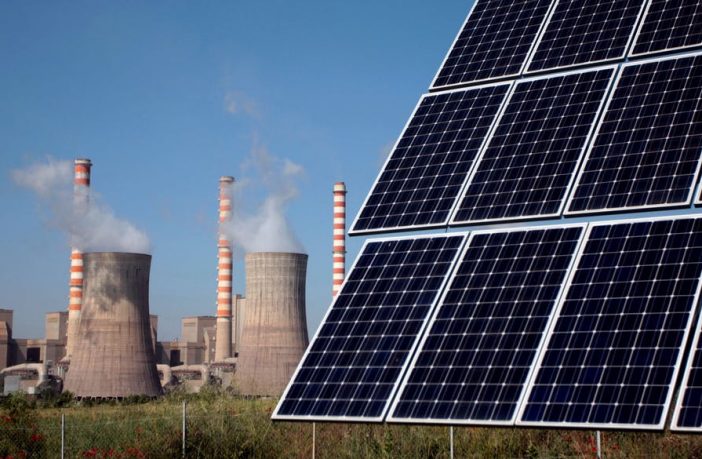- The Life After Coal campaign (comprising the environmental justice groups groundWork and Earthlife Africa, and public interest environmental law group the Centre for Environmental Rights) calls on South Africa to meet the lower bound of its new climate target range by accelerating the coal phase-out and renewable energy build, and to lead on demanding increased financial support from wealthy nations for adaptation and loss and damage at this month’s climate meeting in Glasgow.
Last month, the South African Cabinet approved an updated Nationally Determined Contribution (NDC) in terms of the Paris Climate Agreement. This NDC includes the greenhouse gas emissions limits that South Africa has committed to adhere to – for 2025 and 2030.
Related news: UK, USA, France and Germany lobby Eskom to accellerate transition to renewables from coal
Only the lower bound of South Africa’s Updated NDC target range (of 350 to 420 Mt CO2eq) is broadly consistent with the 1.5°C pathway the world needs to avoid the worst impacts of climate change. To meet that lower bound target within the timeframes set, urgent action must start now. The most pressing actions are:
- Cancelling all new coal projects. This includes the 1500MW of coal still present in the 2019 Integrated Resource Plan for Electricity (IRP) (projected to cost SA 23 billion compared to a least-cost optimised electricity system, and 25 000 job losses economy-wide by 2030), and extra-IRP plans like the proposed 1320MW to 3300MW coal power plant planned for the Musina Makhado Special Economic Zone (MMSEZ).
- Avoiding massive new gas infrastructure projects that modelling has shown we do not need in future. Gas is still a fossil fuel, with high greenhouse gas emissions all along the gas value chain, as well as high negative climate impacts that would move us further away from meeting national obligations. In its Net Zero by 2050 report released in July 2021, the International Energy Agency stated that, in order to reach net zero by 2050, no new oil or gas fields can be developed as of the date of the report. There is currently 25 000MW worth of new gas-fired power projects for which license or authorisation applications have been made.
- Accelerating the retirement of our coal fleet at a rate faster than that prescribed by the timetable in the IRP 2019. The Life After Coal campaign calls for zero fossil fuels in electricity generation by 2040 at the latest, and a zero fossil fuel economy by 2050. Coal pollution is killing our people, and destroying their health. This is a gross Constitutional and human rights violation that cannot continue.
- Accelerating a broad and inclusive just transition from coal and other fossil fuels. In August, the Life After Coal campaign launched a Just Transition Open Agenda which sets out the key tenets of such a just transition. We want a transition that not only secures a coal phase-out, but does so in a way that achieves a fair outcome for workers and communities, including in particular women and youth; that gives effect to Constitutional rights, including the right to equality; and that makes our country and our communities more climate resilient. A credible, supported Just Transition Plan also increases our prospects of getting the finance we need.
- Dramatically scaling up and accelerating our renewable energy build: We are currently far behind the timetables for the already constrained renewable energy plans put forward in the outdated 2019 IRP. Modelling shows that we need to build at least 4 GW of renewable (wind and solar) capacity per year for the rest of the decade in order to meet our committed emission reduction targets. There are many positive spin-offs for economic development and job creation from such a big renewable build.
Author: Bryan Groenendaal
Source: Life After Coal
















1 Comment
4 GW per year is low number to replace 24/7 name plate rating of coal, Wind and especially PV need to be complemented by storage. Storage solutions need to lead the transition to renewables. Coal typicality has 3-4 weeks of on site coal storage. Nuclear and Hydro ( local or imported)are high capital with very low fuel cost plants best run at 100% 24/7, storage would enable 100% output to be maintained rather than following the load.